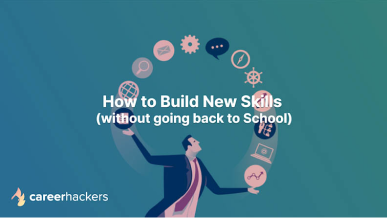Building new skills is essential for personal and professional growth. Whether you’re looking to switch careers or advance in your current one, learning new skills is a great way to enhance your portfolio and show your value to potential employers.
The good news is that you don’t need to go back to school to build new skills. With the right mindset and resources, anyone can learn new skills and succeed in their chosen field. In this article, we’ll explore the best ways to build new skills and achieve your goals.
Identify Skills to Learn
The first step in building new skills is to identify which skills you need to learn. Depending on your career goals, there may be several skills that you need to acquire.
Start by making a list of skills that are necessary for your current or desired role. This could include technical skills, such as programming or design, or soft skills, such as communication or leadership. Once you have a list of skills, prioritize them based on their importance to your career goals.
For example, if you’re looking to transition into a marketing role, you may want to focus on skills such as social media marketing, copywriting, and search engine optimization (SEO). On the other hand, if you’re looking to advance in your current role as a software developer, you may want to focus on learning new programming languages or project management skills.
Seek Out Resources
Once you’ve identified the skills you need to learn, it’s time to seek out resources to help you learn those skills. There are plenty of resources available to help you build new skills, from online courses to workshops and seminars. Here are some options to consider:
Online courses and tutorials: Websites like Udemy, Coursera, and LinkedIn Learning offer a wide variety of courses and tutorials on everything from programming to business management.Or, check out the Top Courses page on Career Hackers!
Workshops and seminars: Industry events and conferences often offer workshops and seminars on specific topics. Attending these events can help you learn from experts in your field and connect with other professionals.Keep an eye on the Events page on CH!
Networking with industry professionals: Building relationships with other professionals in your field can be a great way to learn new skills. Consider joining professional organizations or attending networking events to connect with others in your industry.
Volunteer opportunities: Volunteering for organizations related to your field can be a great way to learn new skills while giving back to your community.
Set Achievable Goals
Once you have access to resources, it’s important to set achievable goals for learning new skills. Setting specific, measurable, achievable, relevant, and time-bound (SMART) goals can help you stay on track and make progress toward your skill-building objectives.
For example, if you want to learn how to code in Python, your SMART goal could be to complete a beginner-level course on Python within the next three months. By setting a specific goal and timeline, you’ll be more likely to follow through on your plans and achieve your objectives.
Create a Schedule and Stick to It
To achieve your goals, it’s important to create a schedule and stick to it. Schedule dedicated time for skill-building activities each day or week, and make sure to prioritize that time in your calendar. By making skill-building a regular part of your routine, you’ll be more likely to follow through on your plans and make progress toward your goals.
Practice, Practice, Practice
Building new skills requires practice, and lots of it. Once you’ve learned the basics of a new skill, look for opportunities to practice and apply what you’ve learned.
Repetition and consistent practice help to reinforce learning and build muscle memory, leading to more natural and efficient execution of new skills.
Here are a few examples of ways to practice new skills:
- Create mock projects or assignments to practice applying new skills in a simulated environment.
- Find a mentor or coach to provide feedback and guidance on your skill-building progress.
- Join a community or group dedicated to practicing and improving specific skills.
- Attend workshops or seminars to practice skills in a hands-on setting.
Track Progress
Tracking progress is essential to staying motivated and accountable in building new skills. Consider using a journal or planner to track your skill-building activities and progress.
There are also several online tools and apps available for tracking progress, such as Trello, Asana, or Habitica. These tools allow you to set goals, track progress, and receive reminders and rewards for completing tasks.
Document Your Work
Remember you can showcase your new skills by learning out loud, and documenting your progress, via a blog post, for example. This signals both your new skill and your growth mindset to the market!
Conclusion
Building new skills is essential for career growth and personal development. With the right mindset and approach, anyone can learn new skills and achieve their goals. Remember to start by identifying the skills you want to learn, find the resources that work best for you, create a plan, and stay motivated. With these steps, you can build the skills you need to succeed in your career and achieve your goals.

